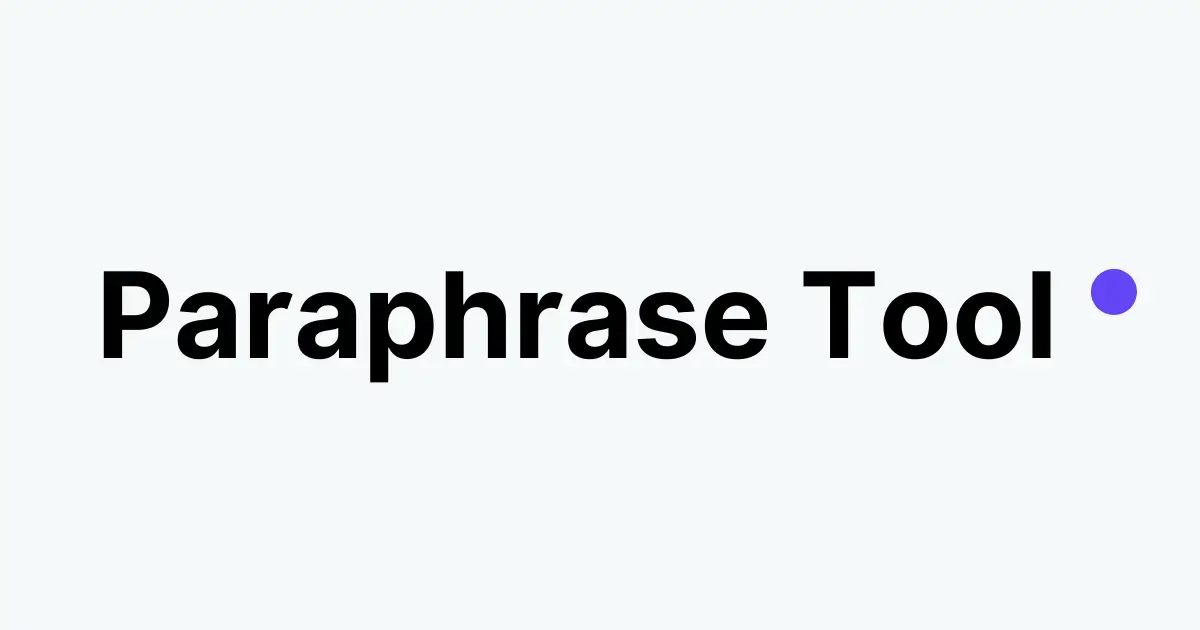Best Payment Gateways for E-commerce in 2024: A Comparison
As e-commerce continues to expand in 2024, selecting the right payment gateway is crucial for any business looking to streamline transactions and improve customer satisfaction. Payment gateways handle the processing of transactions between customers and merchants, ensuring secure and seamless transfers of funds. With various options available, each offering unique features and pricing structures, it's important to choose one that suits your business’s needs.
When evaluating payment gateways, CouponXoo can help e-commerce businesses save on costs by providing deals and coupons for services you may need to integrate. Whether you’re starting a new store or looking to upgrade your payment solution, saving on essential tools can make a huge difference in your bottom line.
This comprehensive comparison looks at the best payment gateways for e-commerce in 2024, covering transaction fees, security features, ease of integration, and more. Let’s dive in!
1. PayPal
Overview:
PayPal remains a leading payment gateway, renowned for its global recognition and trusted security. With its vast user base and simple integration options, PayPal offers a great solution for e-commerce stores of all sizes.
Key Features:
-
Global Reach: PayPal operates in over 200 countries and supports 25 currencies, making it an excellent option for businesses targeting international markets.
-
User-Friendly: It’s known for its easy-to-use interface, both for merchants and customers.
-
PayPal One Touch: Allows users to pay with just one click, reducing cart abandonment rates.
-
Fraud Protection: PayPal provides advanced security measures, including end-to-end encryption and fraud monitoring.
Pricing:
-
Transaction Fees: 2.9% + $0.30 per transaction (domestic); higher fees for international payments.
-
Monthly Fees: No setup or monthly fees, but advanced options like PayPal Pro come with a $30 monthly fee.
Pros:
-
Trusted by millions worldwide.
-
Easy integration with major e-commerce platforms.
-
Supports both credit card payments and PayPal balance payments.
Cons:
-
Higher fees for international payments.
-
Customer service can be slow at times.
Ideal for: Small to medium-sized businesses, international merchants.
2. Stripe
Overview:
Stripe is known for its developer-friendly API and ability to handle complex transactions. It’s a favorite for tech-savvy businesses that want more control over their payment processing.
Key Features:
-
Customizable: Stripe’s API allows developers to customize the payment experience and integrate advanced features.
-
Global Payments: Supports over 135 currencies and provides local payment options like SEPA, ACH, and Klarna.
-
Subscription Management: Offers robust support for subscription services and recurring billing.
-
Security: Stripe complies with the highest security standards, including PCI DSS Level 1 certification.
Pricing:
-
Transaction Fees: 2.9% + $0.30 per transaction (domestic), plus 1% for international cards.
-
Monthly Fees: No monthly fees, although there are additional costs for premium features like Stripe Atlas (for startups) or advanced reporting tools.
Pros:
-
Developer-friendly, highly customizable.
-
Extensive international capabilities.
-
Wide range of integration options with third-party platforms.
Cons:
-
May require developer expertise for full customization.
-
Customer support lacks phone assistance.
Ideal for: Tech-savvy businesses, startups, and subscription-based services.
3. Square
Overview:
Square is known for its ease of use and ability to handle both in-person and online transactions. It’s a versatile option, especially for small businesses that operate both physical and online stores.
Key Features:
-
Omnichannel Payments: Square integrates both in-person and online payments, making it an excellent option for businesses that sell in multiple environments.
-
Free Online Store: For businesses without an existing e-commerce platform, Square offers a free online store option.
-
POS Integration: Square is popular for its point-of-sale system, allowing you to manage inventory and sales both online and offline.
-
No Hidden Fees: Transparent pricing, with no additional fees for refunds or chargebacks.
Pricing:
-
Transaction Fees: 2.9% + $0.30 per transaction (domestic).
-
Monthly Fees: No monthly fees for basic e-commerce functionality; premium services like Square for Retail have additional costs.
Pros:
-
Easy to set up and use.
-
Ideal for small businesses with both physical and online presence.
-
Transparent pricing, no hidden fees.
Cons:
-
Limited to businesses in the U.S., Canada, Japan, Australia, and the UK.
-
Basic e-commerce tools may not be enough for larger businesses.
Ideal for: Small businesses with brick-and-mortar locations and online stores.
4. Authorize.Net
Overview:
Authorize.Net is a well-established player in the payment gateway space. It’s known for its reliability and robust set of features, making it a good option for mid-sized to large businesses.
Key Features:
-
Advanced Fraud Detection: Authorize.Net offers customizable fraud detection tools that help merchants minimize the risk of fraudulent transactions.
-
Recurring Billing: Supports subscription services and recurring payments with ease.
-
Multiple Payment Methods: Accepts payments from credit/debit cards, PayPal, Apple Pay, and more.
-
Customer Information Manager (CIM): Allows businesses to securely store customer payment information for future transactions.
Pricing:
-
Transaction Fees: 2.9% + $0.30 per transaction, or a flat rate of $25 per month plus $0.10 per transaction and a $0.10 daily batch fee for more tailored plans.
-
Monthly Fees: $25 monthly gateway fee.
Pros:
-
Advanced fraud detection tools.
-
Support for a wide variety of payment methods.
-
Strong support for recurring billing.
Cons:
-
The fee structure is a bit more complex.
-
Customer support can be inconsistent.
Ideal for: Medium to large-sized businesses, subscription services.
Related: Top E-commerce Platforms to Use for Your Business
5. 2Checkout (now Verifone)
Overview:
2Checkout, recently rebranded as Verifone, is a flexible payment gateway that specializes in global transactions. It supports multiple payment methods and currencies, making it ideal for businesses looking to expand internationally.
Key Features:
-
Global Payment Processing: 2Checkout supports over 87 currencies and 15 languages, with local payment methods in multiple countries.
-
Customizable Checkout: Merchants can tailor the checkout experience to their customers’ preferences, which helps reduce cart abandonment.
-
Subscription Management: Provides extensive tools for managing subscriptions and recurring payments.
-
Security: Compliant with PCI Level 1 standards, 2Checkout offers advanced fraud protection and 3D Secure authentication.
Pricing:
-
Transaction Fees: 3.5% + $0.35 per transaction for the basic plan, with higher rates for international transactions.
-
Monthly Fees: No monthly fees for the basic plan; enterprise-level plans offer custom pricing.
Pros:
-
Excellent for businesses with a global customer base.
-
Supports multiple payment methods and currencies.
-
Strong subscription management features.
Cons:
-
Higher transaction fees compared to some competitors.
-
Complex fee structure for businesses with a large volume of international transactions.
Ideal for: International e-commerce businesses, subscription-based models.
6. Adyen
Overview:
Adyen is a leading global payment platform that provides end-to-end payments, data, and financial services in a single solution. Known for its scalability, Adyen is favored by large enterprises but is also accessible to smaller merchants.
Key Features:
-
Unified Payment Platform: Adyen offers a single platform for online, mobile, and in-store payments, ensuring seamless integration.
-
Global Reach: Adyen supports payments in over 150 currencies and multiple local payment methods.
-
Advanced Insights: Offers comprehensive reporting and real-time data analytics to optimize payment processes.
-
Security: Adyen is PCI DSS compliant and offers built-in fraud protection through its risk management system.
Pricing:
-
Transaction Fees: Varies by country and payment method, but typically around 2.9% + $0.12 per transaction.
-
Monthly Fees: No setup or monthly fees; pricing is customized for larger enterprises.
Pros:
-
Highly scalable and customizable.
-
Strong global presence with local payment methods.
-
Comprehensive analytics and fraud protection.
Cons:
-
May be more complex to set up for smaller businesses.
-
Premium features can be expensive for smaller businesses.
Ideal for: Large enterprises, global businesses.
Conclusion: Choosing the Right Payment Gateway
Selecting the best payment gateway for your e-commerce business depends on several factors: the size of your business, your target market, and the features that are most important to you. For smaller businesses looking for ease of use and transparency, Square or PayPal may be the best choices. If you're a tech-savvy business that needs advanced customization, Stripe is a great option. For international businesses, 2Checkout or Adyen may offer the global reach and flexibility you need.
While evaluating payment gateways, don’t forget to explore deals and discounts on essential services at CouponXoo. By leveraging available coupons, you can reduce operational costs and maximize your profits. Choosing the right payment gateway, coupled with the right tools and discounts, will help your business thrive in the competitive e-commerce landscape of 2024.
Related: How to Increase Sales on Your Online Store for Black Friday 2024
DEALS DELIVERED TO YOUR INBOX.
Subscribe now for top-notch shopping & Investing advice. Receive hot Vouchers into your wallet
By submitting your information you agree to the Terms & Conditions and Privacy Policy
Related Articles

Feminine Valentine Fashion: 10 Inspiring Ideas for Effortless Elegance

Halloween 2024: Top Trending Costume Ideas and Where to Find Them on Sale

16 Elegant Calligraphy Wedding Invitation Ideas That Speak the Language of Love
.png)
Bundt Cake Frosting Ideas: 10 Top Creative Inspirations to Elevate Your Treats

HotBox Pizza Coupon Code Guide: Score the Best Deals for Your Next Order

Reflections Shattered: Broken Mirror Tattoo Concepts That Speak of Truth, Trauma, and Transformation
Popular Brands
View all
CoinTrendz
5 Coupons Available

Mixo
5 Coupons Available

Ckingscapital.com
5 Coupons Available

CrowTrader
5 Coupons Available

Vidibuzz
5 Coupons Available

Paraphrasetool.com
5 Coupons Available
Popular Articles
View all
Gothic Cathedral Tattoo: Embracing the Beauty of Architecture and Spirituality

iPad Black Friday Sale: Find the Best Deals for 2024

Embrace the Chill with These 10 Stunning Winter Fashion Inspo Aesthetic Looks for 2025 – Shop Your Style Now!

Amped Up Ink: Electrifying Electric Guitar Tattoo Ideas That Rock Harder Than Sound Itself

Introduction & Summary: Discover Bold Valentine Street Style for Urban Romance

Spoon Into Health: 10 Irresistible Smoothie Bowl Ideas to Brighten Your Mornings
LATEST

Last updated: Jan 16, 2026

Last updated: Jun 13, 2025

Last updated: Jun 4, 2025

Last updated: Jun 26, 2025

Last updated: Jun 13, 2025

Last updated: May 5, 2025
